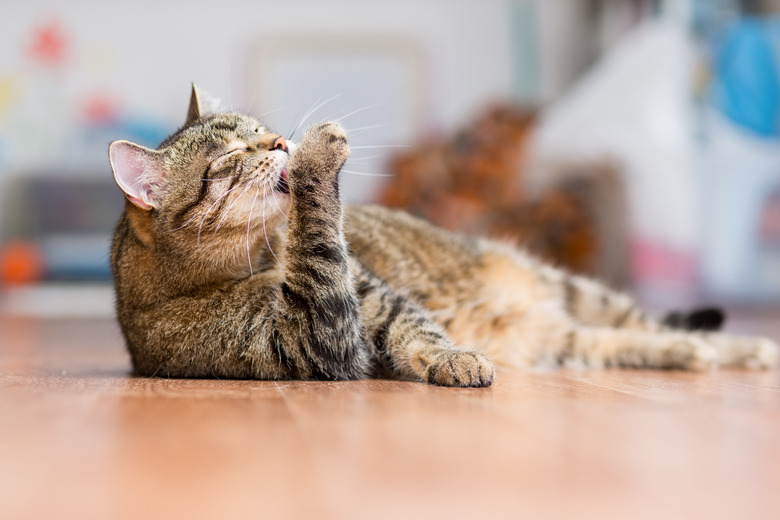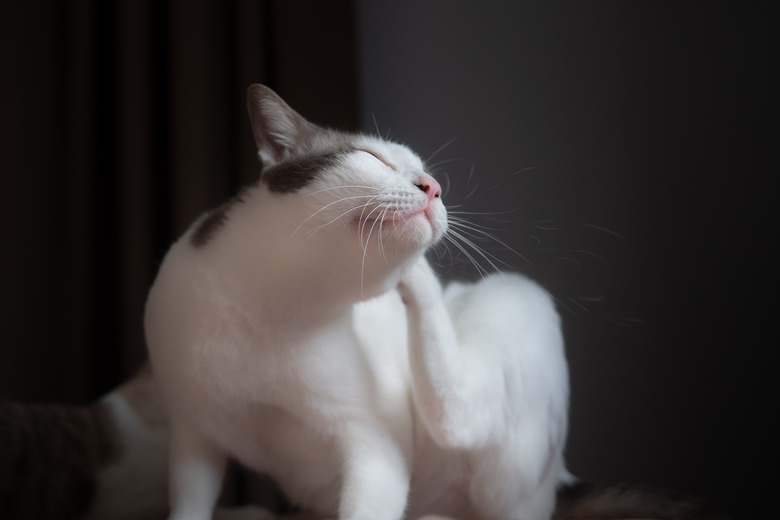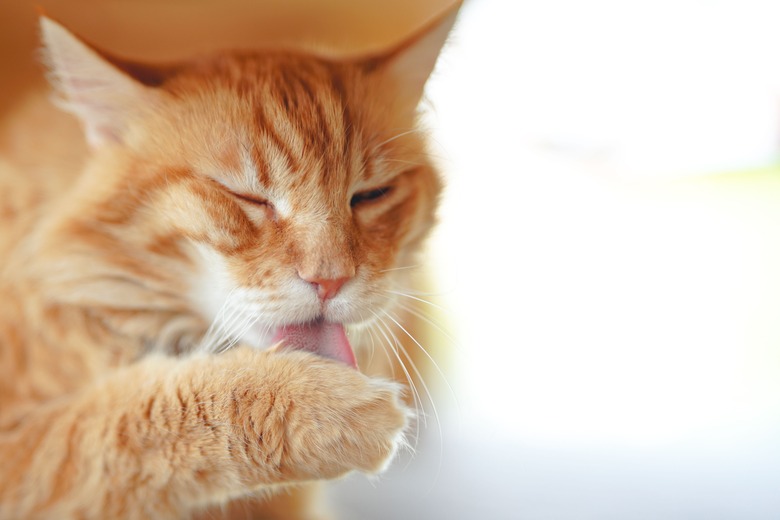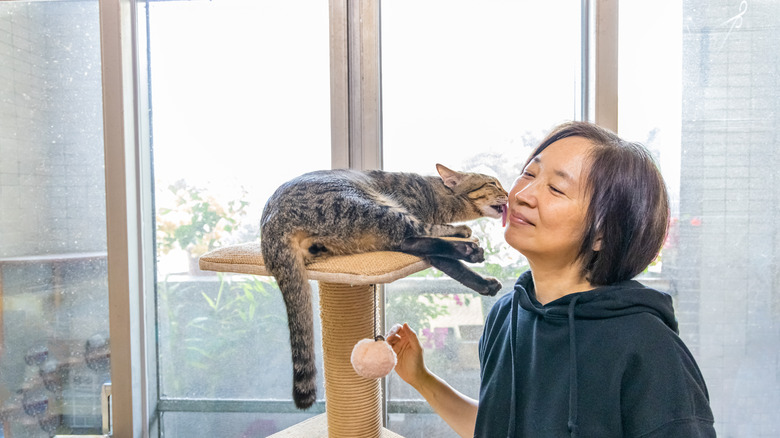Why Does My Cat Pull Her Hair Out?
Seeing your cat pulling out her fur can be distressing. Why would she do that, and is she hurting herself? It turns out that a common cause is that a stressed cat might excessively lick herself, or she might use her teeth to pull clumps of fur. But certain medical conditions might also be to blame.
Why does my cat pull her hair out?
Why does my cat pull her hair out?
There are a few reasons why your cat may be pulling their hair out. Luckily, it is a list of things that are fairly easy to check for. So if you have this cat health problem, you should be able to figure out what the underlying cause is.
In addition to causing bald spots, this behavior could potentially lead to skin infections or other issues, so it's necessary to figure out the cause and treat it with the help of a veterinarian. Here are some of the reasons cats might do this to themselves.
Feline allergies
Feline allergies
If your cats lick excessively or pull out fur, they might be experiencing an allergic reaction that causes itchy skin. In an effort to relieve the discomfort, she may use her tongue, teeth, and claws. If she targets the same spot over and over again, she could end up losing quite a bit of fur there. Or, if she feels itchy all over her body, you may notice her grooming much more than usual, and that might result in hair loss.
To figure out if allergies are the cause of your pet's behavior, head to the veterinarian for a diagnosis. The aim of treatment would be to get your cat comfortable by stopping the itch, and your veterinarian can pinpoint the types of allergens (food, environmental, flea bites, etc.) that are affecting your feline. For example, they might recommend a cat food trial to determine if food allergies are the culprit and if a diet change is required.
Medications to control itchiness and inflammation might be prescribed. In some cases, a long-term treatment plan might be needed to control the allergies and symptoms.
Skin parasites in cats
Skin parasites in cats
Parasites like mites, fleas, and lice can cause itchiness that makes your cat uncomfortable to the point that she excessively licks and bites herself. In the process of desperately trying to get relief, hair pulling might occur.
Because these tiny bugs could be hard to see, a trip to the veterinarian can give you answers. A miticide, lice treatment, or flea medication can kill the parasites, stop the itch, and stop your cat from pulling out her hair. Only use products specially formulated for cats to treat these conditions. Plus, you can talk to your veterinarian about ways to prevent a future mite or flea infestation.
Psychogenic alopecia in cats
Psychogenic alopecia in cats
Cats are known for spending a lot of time cleaning themselves, and they also groom to relax. However, when they're stressed, some cats over-groom. Psychogenic alopecia can lead to hair loss from all of the licking, biting, and pulling on the fur.
This displacement behavior should be taken seriously. Damage to the skin might cause other problems, such as bacterial infections. Plus, you'll want to find ways of helping your kitty feel safe and happy in her environment so she won't feel the need to groom for stress relief.
Cats can become stressed and exhibit compulsive behavior for a variety of reasons, such as:
- Moving to a new house
- Changes, noise, or instability in the cat's environment
- New pets or babies
- Separation anxiety
- Boredom and attention seeking
Take your pet to the veterinarian to figure out the cause and to rule out or address medical concerns. They can come up with solutions you can implement, such as Feliway pheromone products or environmental enrichment. Also, they might prescribe medications or supplements that reduce anxiety in cats.
Fungal infections in cats
Fungal infections in cats
Fungal skin infections could cause symptoms like itchiness and changes to your cat's skin and coat. For example, when a cat has ringworm, you may notice scaly, circular bald patches. Treatment is necessary to eliminate ringworm and prevent it from spreading to people and other pets. It can be spread through direct contact with an infected animal or contact with the fur, skin, bedding, grooming tools, and other items used by an infected animal.
If you suspect your cat has ringworm or another fungal infection, take her to your veterinarian for an accurate diagnosis. Tests like a skin scraping or fingal culture might be used to figure out the cause of your pet's symptoms. Anti-fungal treatments, which include oral and topical medications as well as medicated baths, will get rid of the infection.
Hormone conditions in cats
Hormone conditions in cats
In certain cases, cats don't pull out their hair from excessive grooming or because they feel itchy and uncomfortable. Sometimes, hair loss is due to health problems, like hyperthyroidism. Put simply, disruption of thyroid hormones can cause a kitty's fur to fall out. You may notice patchy hair loss or an unkempt coat. And although there won't be any itchiness, there may be other symptoms, such as weight loss or vomiting.
A veterinarian can determine if your cat has hyperthyroidism and can provide treatment that might include medication or radioactive iodine to target the overproducing thyroid tissue.
The bottom line
The bottom line
There are many reasons a cat might experience hair loss. In some cases, it's because of a medical condition, like hyperthyroidism. Other times, it could be the result of overgrooming, which might occur if your cat is stressed. Or, she might have a problem that causes itchiness, such as external parasites, a food or flea allergy, or environmental allergies. Whether you actually see your cat licking herself and plucking out her own hair or you don't know why her fur is falling out, consult your DVM to figure out the underlying cause and get the right treatment for your feline companion.



